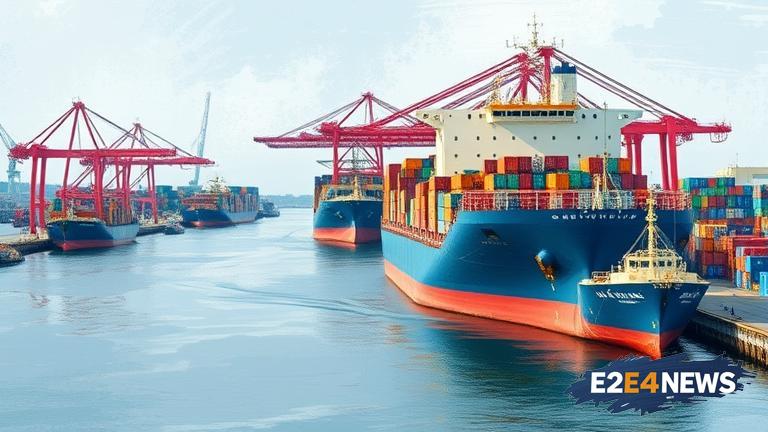The British Port Association, the representative body for the UK’s port industry, has issued a statement in response to the government’s latest moves, highlighting the importance of a comprehensive and coordinated approach to supporting the maritime sector. The association has welcomed the government’s recognition of the sector’s significance, but has also emphasized the need for a more detailed and nuanced understanding of the industry’s requirements. The UK’s ports play a vital role in the country’s economy, handling over 95% of the nation’s international trade and supporting hundreds of thousands of jobs. However, the industry faces significant challenges, including increasing competition from European ports, rising costs, and regulatory pressures. The British Port Association has called on the government to provide a more supportive policy framework, including measures to reduce bureaucracy, increase investment in infrastructure, and promote the development of new technologies. The association has also highlighted the need for greater clarity on the government’s plans for Brexit, which is expected to have a significant impact on the maritime sector. The UK’s decision to leave the EU has created uncertainty and concern among port operators and users, with many fearing that new trade barriers and regulatory requirements could increase costs and disrupt supply chains. The British Port Association has urged the government to prioritize the needs of the maritime sector in its Brexit negotiations, including securing tariff-free access to EU markets and maintaining the free movement of goods and services. The association has also emphasized the importance of investing in digital technologies, such as port community systems and data analytics, to improve efficiency and competitiveness. Furthermore, the British Port Association has called for greater investment in port infrastructure, including the development of new facilities and the upgrading of existing ones. This includes the need for more funding for projects such as the development of new container terminals, the expansion of existing ports, and the improvement of road and rail connections. The association has also highlighted the need for a more coordinated approach to maritime policy, including the development of a comprehensive national maritime strategy. This would involve bringing together stakeholders from across the industry, including port operators, shipping lines, and logistics providers, to identify key priorities and develop a shared vision for the future. The British Port Association has also emphasized the importance of promoting the maritime sector as a career destination, including the need for more investment in training and education programs. The association has also highlighted the need for greater awareness of the industry’s contribution to the UK economy and its role in supporting national prosperity. In addition, the British Port Association has called for more support for the development of new and innovative technologies, including the use of autonomous systems, artificial intelligence, and the Internet of Things. The association has also emphasized the need for a more sustainable approach to maritime operations, including the reduction of emissions and the promotion of environmentally-friendly practices. The UK government has announced plans to reduce greenhouse gas emissions from the maritime sector, including the development of new regulations and incentives for the use of cleaner fuels and technologies. The British Port Association has welcomed these plans, but has also emphasized the need for a more nuanced and industry-led approach to reducing emissions. The association has also highlighted the need for greater international cooperation on maritime issues, including the development of global standards and regulations. The UK is a major player in the global maritime sector, with many of its ports and shipping companies operating internationally. The British Port Association has called for the government to prioritize the needs of the maritime sector in its international negotiations, including the promotion of free trade agreements and the reduction of trade barriers. Overall, the British Port Association’s response to the government’s latest moves highlights the need for a more comprehensive and supportive policy framework to drive growth and investment in the maritime sector. The association has emphasized the importance of promoting the industry’s interests and priorities, including the need for greater investment in infrastructure, technology, and people. By working together, the government and the maritime sector can build a more sustainable and prosperous future for the industry and the UK economy as a whole.
